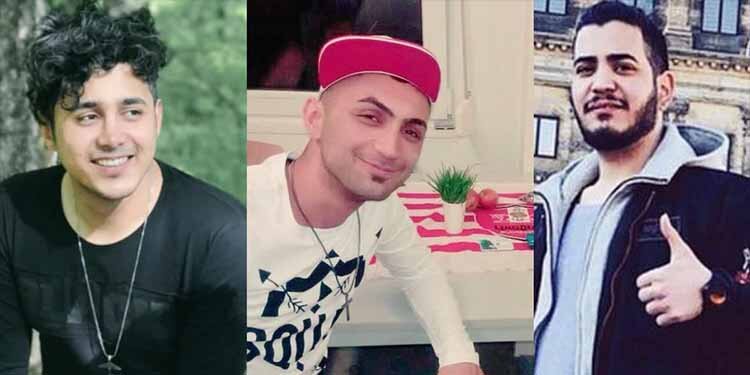Political prisoner Amir Hossein Moradi who is one of the victims of Coronavirus has been transferred to Suite 11 of Ward 1 of the Great Tehran Penitentiary.
Amir Hossein Moradi was arrested during the protests in November 2019 and was sentenced to death.
Saeed Tamjidi, Mohammad Rajabi, Milad Arsanjani, Jamil Ghahremani and 15 other protesters arrested in November 2019, have also been transferred to the same room.
All these prisoners are suspected of contracting Covid19 and being victims of Coronavirus after Amir Hossein Moradi tested positive. All of them were removed from the previous room under the pretext of being sent to the hospital of Yaftabad.
Amir Hossein Moradi, Saeed Tamjidi, and Mohammad Rajabi have already been sentenced to death for participating in the protests in November 2019.
These prisoners are now being kept in a room neighboring convicts of violent offenses, a measure in violation of the principle of separation of prisoners of different categories.
In June 2019, political prisoner Alireza Shir Mohammadi was stabbed to death in the same room by two prisoners convicted of drug-related charges.
After the murder of Alireza Shir Mohammadi, prison authorities transferred the few remaining political prisoners in this room to other places to prevent similar incidents. Reneging on their promise, they have now returned political prisoners suffering from dangerous illness to the same place.
A source close to the family of one of these prisoners confirmed the report, saying, “these prisoners were removed from their room under the pretext of taking them to the hospital of Yaftabad. In the final moments before leaving the prison, however, the plan for going to hospital was cancelled. On the order of the prison’s warden, they were taken to suite 11 of Ward 1 was previously used to quarantine and punish inmates.”
Ward 1 is the place for detention of dangerous criminals. Alireza Shir Mohammadi was murdered in this suite. So, the new place is not safe for the imprisoned protesters who are suspected of being victims of Coronavirus.
Ward 1 of the Great Tehran Penitentiary has 10 sections and a suite which was used to punish prisoners who clashed and fought with other inmates or had drugs with them. Since 2017, this suite has been used to detain political prisoners. This suite has less facilities compared to other sections. The inmates detained in this suite do not have access to the prison’s store, either.
The closed space of prison, low quality of food, lack of medical and health resources, overcrowded rooms, and emergence of victims of Coronavirus in some prisons, have caused serious concern among prisoners and their families.
In some prisons, including the prisons of Khorramabad (capital of Lorestan Province) and Sanandaj (capital of the Iranian Kurdistan Province), inmates have held protests and demanded to receive medical and health resources, as well as to quarantine prisoners suspected of contracting the virus.
They have threatened to go on hunger strike if prison authorities fail to respond to their demands.
The situation in other prisons including in Karaj, Urmia, Tabriz, and Tehran is volatile.
On February 29, prisoners detained in Baz Prison of Khorramabad went on strike to protest the authorities’ failure to send them on furlough despite the outbreak of Coronavirus in this prison.











